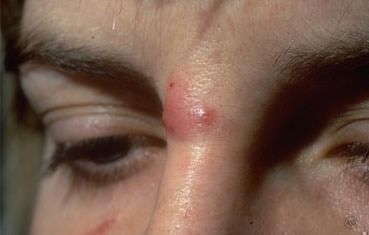Get the App
For Doctors
Login/Sign-up
Last Updated: Aug 29, 2019
BookMark
Report
Adult Acne
Why it happens and what you can do for it
Acne can be particularly frustrating for adults. A treatment that worked so well during our teen years can be useless — or make acne worse. If this happens, you may wonder whether those blemishes really are acne. After all, do adults get acne?
Reasons for adult acne
Yes, adults get acne. Some adults continue to get acne well into their 30s, 40s, and even 50s. It is even possible to get acne for the first time as an adult. Dermatologists call this “adult-onset acne.” It is most common among women going through menopause.
Women tend to get adult acne more often than men do. If you’re getting acne as an adult, it is likely due to one or more of the following reasons:
Fluctuating hormone levels: An imbalance can lead to breakouts.
Women often experience fluctuating hormones:
Around their periods
During pregnancy, peri-menopause, and menopause
After discontinuing (or starting) birth control pills
Stress: Researchers have found a relationship between stress and acne flare-ups. In response to stress, our bodies produce more androgens (a type of hormone). These hormones stimulate the oil glands and hair follicles in the skin, which can lead to acne. This explains why acne can be an ongoing problem when we find ourselves under constant stress.
Family history: Does a close blood relative, such as a parent, brother, or sister have acne? Findings from research studies suggest that some people may have a genetic predisposition for acne. People who have this predisposition seem more likely to get adult acne.
Hair and skin care products: If you have adult acne, you should read the labels on your skin care and hair care products. Make sure that you see one of the following terms on every container:
Non-comedogenic
Non-acnegenic
Oil-free
Won’t clog pores
You want to make sure your moisturizer, cleanser, sunscreen, and all other products contain one of these terms. These products are least likely to cause acne.
Medication side effect: Acne is a side effect of some medicines. If you suspect that a medicine is triggering your acne or making it worse, continue taking the medicine — but talk with the doctor who prescribed it. Ask if acne is a possible side effect. If acne is a possible side effect, ask if you can take a different medicine. If you cannot take another medicine, you may want to see a dermatologist who can help you control the acne.
Undiagnosed medical condition: Sometimes, acne is a sign of an underlying medical condition. Once the medical condition is diagnosed and treated, the acne often clears.
Please Contact us through Lybrate online Consultation for Acne & Acne Scar treatments.
Acne can be particularly frustrating for adults. A treatment that worked so well during our teen years can be useless — or make acne worse. If this happens, you may wonder whether those blemishes really are acne. After all, do adults get acne?
Reasons for adult acne
Yes, adults get acne. Some adults continue to get acne well into their 30s, 40s, and even 50s. It is even possible to get acne for the first time as an adult. Dermatologists call this “adult-onset acne.” It is most common among women going through menopause.
Women tend to get adult acne more often than men do. If you’re getting acne as an adult, it is likely due to one or more of the following reasons:
Fluctuating hormone levels: An imbalance can lead to breakouts.
Women often experience fluctuating hormones:
Around their periods
During pregnancy, peri-menopause, and menopause
After discontinuing (or starting) birth control pills
Stress: Researchers have found a relationship between stress and acne flare-ups. In response to stress, our bodies produce more androgens (a type of hormone). These hormones stimulate the oil glands and hair follicles in the skin, which can lead to acne. This explains why acne can be an ongoing problem when we find ourselves under constant stress.
Family history: Does a close blood relative, such as a parent, brother, or sister have acne? Findings from research studies suggest that some people may have a genetic predisposition for acne. People who have this predisposition seem more likely to get adult acne.
Hair and skin care products: If you have adult acne, you should read the labels on your skin care and hair care products. Make sure that you see one of the following terms on every container:
Non-comedogenic
Non-acnegenic
Oil-free
Won’t clog pores
You want to make sure your moisturizer, cleanser, sunscreen, and all other products contain one of these terms. These products are least likely to cause acne.
Medication side effect: Acne is a side effect of some medicines. If you suspect that a medicine is triggering your acne or making it worse, continue taking the medicine — but talk with the doctor who prescribed it. Ask if acne is a possible side effect. If acne is a possible side effect, ask if you can take a different medicine. If you cannot take another medicine, you may want to see a dermatologist who can help you control the acne.
Undiagnosed medical condition: Sometimes, acne is a sign of an underlying medical condition. Once the medical condition is diagnosed and treated, the acne often clears.
Please Contact us through Lybrate online Consultation for Acne & Acne Scar treatments.



+1.svg)
